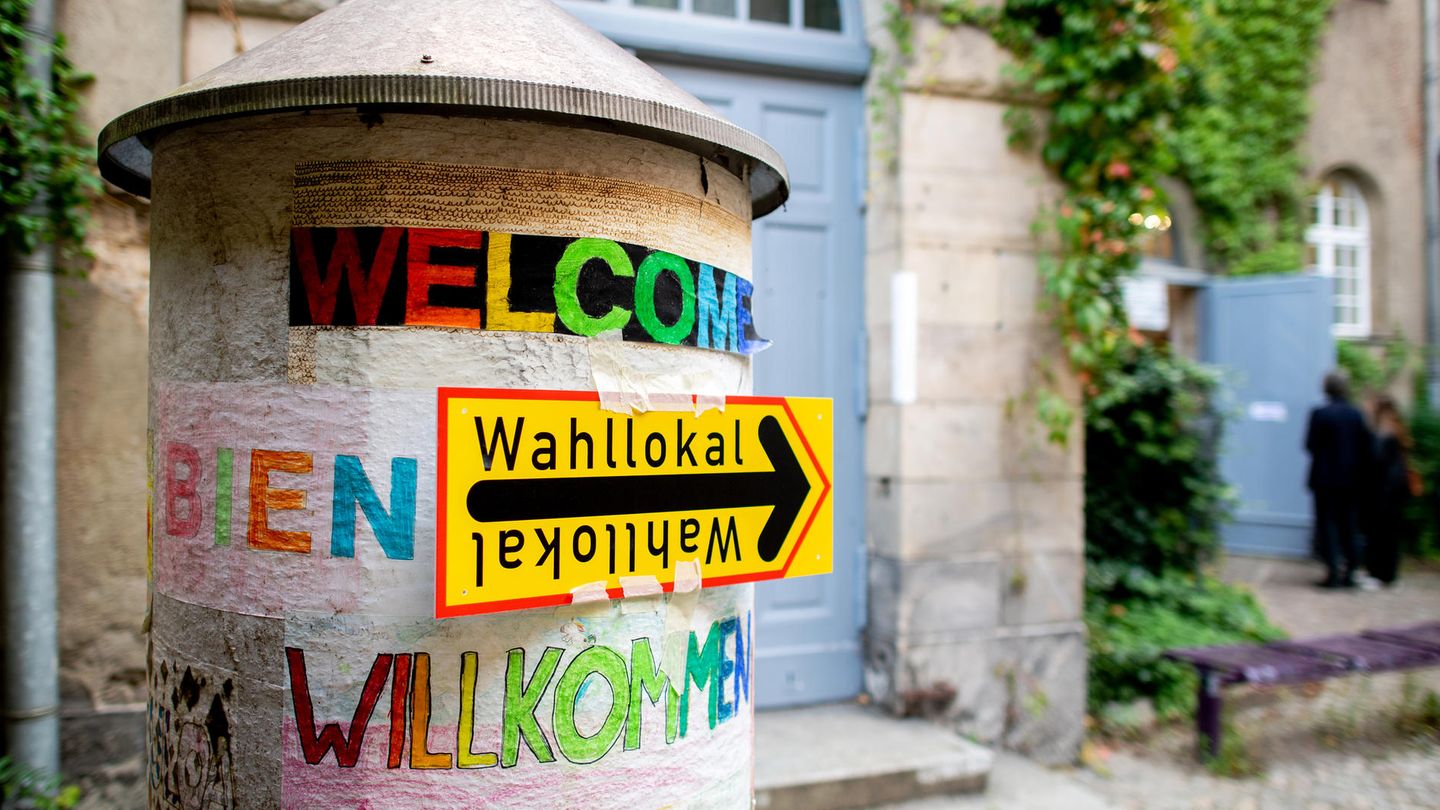questions and answers
In Berlin, the federal, state and district parliaments were elected at the same time last Sunday. There was also a referendum. There were massive problems in numerous polling stations. Do the elections have to be repeated?
It started with photos of long queues in front of polling stations on Sunday morning. Since then, new mishaps have come to light every day, the state returning officer resigned and many people wonder whether such elections are still valid or should be repeated. Questions and answers about a confusing situation.
What were the main problems with the Berlin elections?
In front of some of the 2,257 polling stations in 78 constituencies for the House of Representatives election, voters had to queue for a long time. Ballot papers were missing in the meantime and had to be delivered by messenger. In some cases, votes could only be cast after 6 p.m. In some places, voters received false ballot papers from other districts or constituencies that were later deemed invalid. The counting did not go smoothly everywhere, as election officials reported. By the middle of the week no results were available from several polling stations in the Charlottenburg-Wilmersdorf district; estimated figures were published on the Internet.
How many polling stations or constituencies were affected?
That was still unclear until the middle of the week. The inventory continued on Thursday. On Monday, the state election control had spoken of problems in about 100 polling stations. Since then, reports from voters and election workers from many Berlin districts have increased. The broadcaster RBB reported on Wednesday that a noticeable number of ballot papers were invalid in at least 99 polling stations. There are at least 13,120 votes in all ballots.
What were the causes of the breakdowns?
The main problem was the simultaneous elections to the Bundestag, the Berlin House of Representatives, the district parliaments and a referendum. There were also corona conditions and closures because of the Berlin marathon. The state election control had set up more than 400 additional polling stations and increased the number of election workers from around 20,000 to 34,000. Apparently, however, many voters needed more time than expected for their six crosses on five ballot papers. Some people spent five to ten minutes in the cabin, observers reported. Too few voting booths were available in many polling stations.
The lack of ballot papers during the day was partly due to the fact that the electoral officers had to bring more boxes to their respective polling stations than before. Some only picked up the remaining boxes during the day. Other ballot boxes were labeled incorrectly and were taken to the wrong polling station. The election management knew about it early on because it had already been noticed when sending the ballot papers to postal voters. She pointed this out to all election boards. The warning probably didn’t go through everywhere. In addition, many additional election workers had no previous experience and received only brief instructions.
Who is responsible for the mess?
This is a controversial issue. The bottom line is that the regional election committee is responsible for ensuring that the voting runs properly. State Returning Officer Petra Michaelis made her post available on Wednesday because of the “circumstances surrounding the election”. In detail, however, the elections are organized at the level of the Berlin districts, which are each comparable to large cities. These in turn point to poor equipment, especially in terms of personnel, by the Senate.
Does the election have to be repeated?
So far, in Berlin politics and election lines it has not been assumed that the Bundestag or House of Representatives election as a whole will have to be repeated. In individual constituencies or districts, however, a new election may be necessary if irregularities have had a “mandate-relevant” effect, for example if the results are tight.
What’s next?
The examination of all results in the districts will take time because of the 1.8 million valid votes in the House of Representatives election alone. At the latest by the meeting of the state election committee on October 14th, at which the final result will be determined, there should be more clarity. Only then would the election result of the House of Representatives be contestable. In this case, the Constitutional Court would have to be approached. In the Bundestag election, it would be the Bundestag. However, the President of the Federal Constitutional Court, Stephan Harbarth, pointed out that not every deficiency makes an election invalid.
David William is a talented author who has made a name for himself in the world of writing. He is a professional author who writes on a wide range of topics, from general interest to opinion news. David is currently working as a writer at 24 hours worlds where he brings his unique perspective and in-depth research to his articles, making them both informative and engaging.




